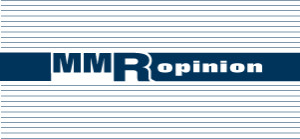If recent history has taught mass market retailers anything, it is that established patterns of business are sometimes upended in sudden and unexpected ways. Kate Ancketill, founder and chief executive officer of London-based GDR Creative Intelligence, addressed the implications that major disruptions have for merchants during a presentation at the National Retail Federation’s Big Show.
 “We’ve all been living through and coming to terms, over the last three years or so, with the big three Cs — COVID, conflict and climate change,” said Ancketill, whose firm has worked with the likes of Target, Tesco, Sephora, Procter & Gamble and Clorox.
“We’ve all been living through and coming to terms, over the last three years or so, with the big three Cs — COVID, conflict and climate change,” said Ancketill, whose firm has worked with the likes of Target, Tesco, Sephora, Procter & Gamble and Clorox.
“It was very interesting that last year Collin’s Dictionary chose the word permacrisis as their word of the year. Many people are saying that the whole COVID thing was just a fire drill for the permacrisis that we are now in.”
Disruptors can take multiple forms — everything from the appearance of new viral diseases and economic fluctuations to advances in digital technology — but the first among equals is climate change.
Ancketill made note of “the fact that we now have to deal with finite resources and more frequent and more extreme weather events … and the impact that that has on supply chains,” and added that the deadline for meeting global net zero targets is only seven years away, and in terms of the exploitation of nature “the science says that we’ve already exceeded the point of no return of four out of the nine major indices.”
The private sector is stepping up to the challenge. Among the examples cited by Ancketill were Tesco’s launch of a business-to-business exchange where farmers and other suppliers can share resources in an effort to reduce food waste; British beauty brand Faith in Nature’s decision to put a lawyer to advocate for the environment on its board of directors; and Adidas’ use of mycelium in packaging.
The overarching trend is a focus on regeneration. “Offsetting was the kind of classic sustainability approach where you basically do harm to the environment, but then you make it better by planting some trees, paying someone else to mitigate,” said Ancketill. “What we’re seeing now is a move to this new word, insetting, where you basically fix the damage at every point in the supply chain as you go along, but you also do so in a way that takes into account social justice.”
Among much else, the presentation was a salutary reminder that it is imperative for retailers and other businesses to do everything in their power to solve the most pressing issue of our time.




You must be logged in to post a comment Login